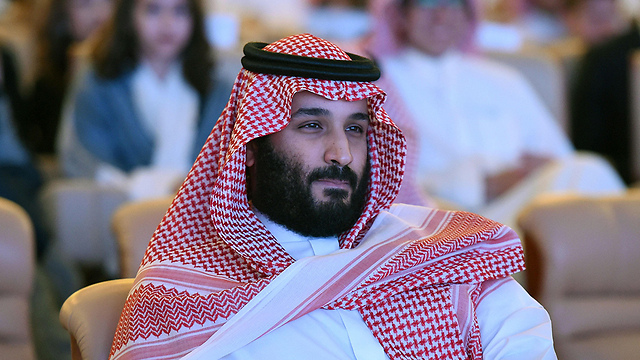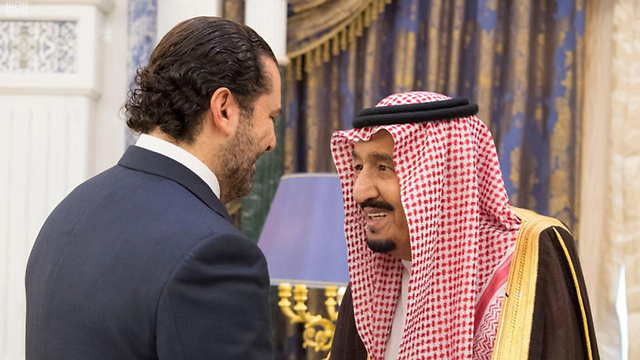


Will changes in Riyadh lead to new era in Israel-Saudi relations?
Analysis: The Iranian danger alone likely won’t be enough to openly bring Saudi Arabia and Israel closer together. Crown Prince Mohammad bin Salman would like to avoid Arab criticism over his ‘betrayal of the Palestinian people.’ A positive Israeli response to the expected American normalization initiative might convince him to take the risk.
For decades, Israel argued that the Israeli-Palestinian conflict wasn’t the root of the Middle East’s problems and that the instability in the region was affected by religious and tribal conflicts, autocratic and theocratic regimes or atrocious poverty and water scarcity.
As a former Foreign Ministry official, I can testify that no one listened to us or understood. Six years of an “Arab winter,” millions of refugees, ruined cities and one-third of the Arab League states looking completely different from the way they did a decade ago, made it clear to those who had claimed that solving the conflict with the Palestinians would cure the region’s diseases that Israel isn’t the problem.
In the coming weeks, the Trump administration is expected to launch a new initiative (possibly the same old thing under a different cloak), which includes normalization gestures from Arab states towards Israel. Palestinian President Mahmoud Abbas and US special envoy Jason Greenblatt’s visits to Riyadh strengthen the expectation for Saudi gestures. If such gestures are offered, they will be part of a debate arising in Israel over the content of the initiative and the value of said gestures.

Saudi Arabia is undergoing a quick process of change. Crown Prince Mohammad bin Salman may become the youngest Arab king, and at the age of 32 he is already leaving his mark on the kingdom. Since 2015, he has been the engine for deep changes in the country’s security, foreign, social and economic policy. Since he began his involvement, Saudi Arabia has been standing firmly and openly against Iran, its nuclear program and its subversive activity in the region, especially in Yemen, Riyadh’s backyard, where Iran is helping the Houthi rebels.
Iran’s subversion isn’t new. The innovations in the past few years were the nuclear effort, former US President Barack Obama’s weakness and helplessness, and Mohammad bin Salman’s meteoric rise. Both Israel and Saudi Arabia watched the American administration’s willingness to strike a deal with Iran, which fails to put a complete lid on its nuclear option, with a lot of concern. Both Israel and Saudi Arabia are learning President Donald Trump, unlike his past version presidential hopeful Donald Trump, won’t walk away from the agreement with Iran unless it is blatantly violated.
Even if they aren’t voicing it clearly, Israel and Saudi Arabia are also concerned about Washington’s tendency to continue the gradual process of retreating from the Middle East. The lack of success in the Afghanistan and Iraq wars, the declining dependence—which was never critical—on regional oil sources, and the very small chance for diplomatic achievements as a result of US initiatives are discouraging American investments in the region.

Israel and Saudi Arabia are concerned about dormant American involvement in Syria compared to Russia and Iran’s active presence. Furthermore, they suspect that Iran is developing a land corridor beyond the Mediterranean Sea, with the help of its allies—mostly Shiites—who control part of this axis.
Lebanon is an integral part of the Iranian plan, and Hezbollah is an essential tool in its implementation. Lebanese Prime Minister Saad al-Hariri’s resignation should be interpreted against this background. Preventing the creation of an Iranian corridor is a heavy strategic mission, which will be hard to accomplish without American involvement. That can explain the slight warmup in Saudi Arabia’s relations with Russia and the stronger Russian-Israeli dialogue on the Syrian issue.
The Iranian danger alone likely won’t be enough to openly bring Saudi Arabia and Israel closer together. Mohammad bin Salman is working on fortifying his inheritance, and it’s unlikely that he wants to expose himself to Arab criticism, especially Iranian, over his “betrayal of the Palestinian people.” A positive Israeli response to the American initiative, once it is formed, might convince him to take the risk.
Dr. Oded Eran, a senior research fellow at the Institute for National Security Studies (INSS), served as head of Israel's negotiations team with the Palestinians in 1999-2000.















